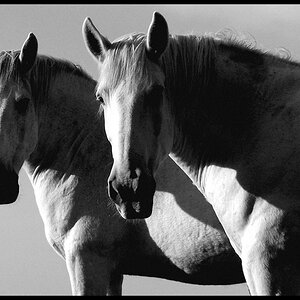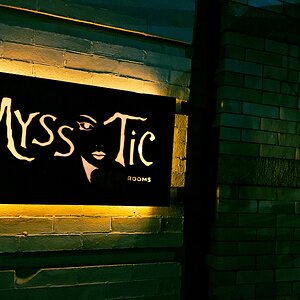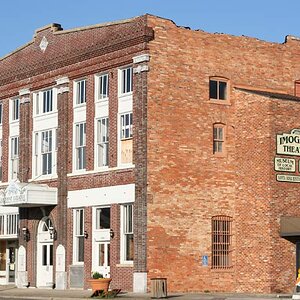mrelsewhere
TPF Noob!
This afternoon, before boarding an above-ground Green Line train in Boston, I snapped two pictures of the train and people standing on the platform. As I boarded the train, the conductor informed me that I wasn't allowed to take pictures of the train. I was surprised and told her that I hadn't heard that rule and that it didn't make sense to me. She simply repeated that it was not permitted. That was the extent of the encounter. She didn't seem upset or ask for me to erase the pictures, but I suddenly felt like a criminal. Like someone was accusing me of being a terrorist because I carried a camera.
So I googled it.
Here is the official policy of massDOT (Massachusetts Department of Transportation): Only tripods and equipment that can disrupt foot traffic are prohibited on train platforms. No permission is required for non-commercial photography (e.g. images taken by tourists, railroad buffs, students, artists). Any person wishing to take images for commercial purpose must first obtain a permit (at no cost) from the MBTA. If approached by an MBTA official, a photographer must be willing to provide identification or show a permit. Except as otherwise permitted by law (e.g. lawful arrest), officials cannot confiscate or delete images without first receiving permission from the photographer. Persons taking images of MBTA property or vehicles from a public area not MBTA property (e.g. street or public sidewalk) are not subject to this policy.
So I googled it.
Here is the official policy of massDOT (Massachusetts Department of Transportation): Only tripods and equipment that can disrupt foot traffic are prohibited on train platforms. No permission is required for non-commercial photography (e.g. images taken by tourists, railroad buffs, students, artists). Any person wishing to take images for commercial purpose must first obtain a permit (at no cost) from the MBTA. If approached by an MBTA official, a photographer must be willing to provide identification or show a permit. Except as otherwise permitted by law (e.g. lawful arrest), officials cannot confiscate or delete images without first receiving permission from the photographer. Persons taking images of MBTA property or vehicles from a public area not MBTA property (e.g. street or public sidewalk) are not subject to this policy.



![[No title]](/data/xfmg/thumbnail/30/30993-7c6dca4375064e92f2ea6cbfabf9b59e.jpg?1619734556)



![[No title]](/data/xfmg/thumbnail/30/30995-7e48e5498fe9a56ea3d405cf87f3a1ec.jpg?1619734558)





![[No title]](/data/xfmg/thumbnail/1/1592-cfae4a7ea791f96c6e2d03484be2e454.jpg?1619729144)
